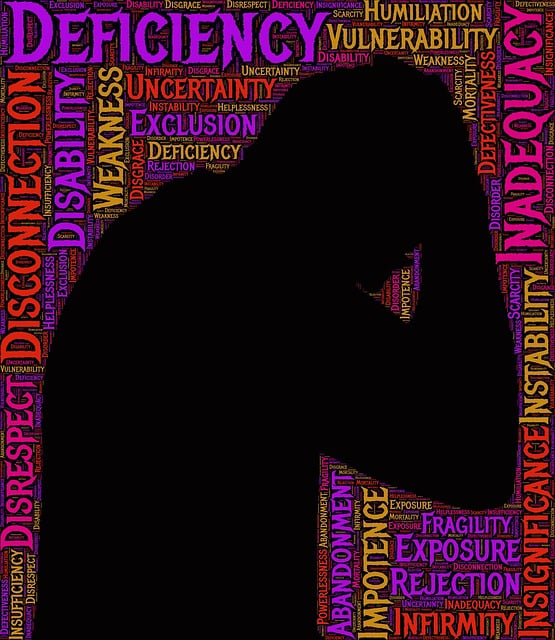Mental health professionals providing Lone Tree Sexual Abuse Survivor Therapy must go beyond external risk assessment to explore clients' emotional landscapes, addressing vulnerabilities and emerging issues through evidence-based techniques like cognitive reframing and stress management workshops. A robust risk management plan should prioritize self-care, regular reflection, and work-life balance to prevent burnout. This includes tailored conflict resolution strategies and comprehensive risk assessments considering historical abuse, current stressors, and triggers. Proactive approaches like Mind Over Matter principles, cultural sensitivity, and continuous learning enhance resilience and therapeutic relationships for diverse clients, ultimately improving outcomes and fostering a supportive mental health ecosystem.
In the sensitive field of mental health, particularly within the context of Lone Tree Sexual Abuse Survivor Therapy, effective risk management is paramount. This article guides professionals through crucial aspects of planning, offering insights into understanding and mitigating risks unique to this therapy setting. We explore essential components of a comprehensive strategy, focusing on strategies to safeguard both clients and practitioners. By implementing these practices, therapists can enhance their ability to provide secure and supportive care.
- Understanding Risk in Lone Tree Sexual Abuse Survivor Therapy
- Essential Components of a Comprehensive Risk Management Plan
- Strategies for Mitigating Risks and Ensuring Safe Practice
Understanding Risk in Lone Tree Sexual Abuse Survivor Therapy

In the context of Lone Tree Sexual Abuse Survivor Therapy, understanding risk goes beyond recognizing potential hazards. It entails a nuanced appreciation of the complex emotional landscape navigated by survivors. Each client brings their unique history and experiences, making risk assessment dynamic and deeply personal. Therapists must be vigilant in perceiving subtle cues that may indicate heightened vulnerability or emerging issues, such as relapsing symptoms or difficulty with emotional regulation.
The journey towards recovery is often fraught with challenges, including flashbacks, nightmares, and anxiety. Efficient risk management planning for mental health professionals facilitating Lone Tree Sexual Abuse Survivor Therapy involves equipping themselves with evidence-based strategies. This includes fostering positive thinking through cognitive reframing techniques and teaching stress management workshops to empower survivors with coping mechanisms. Additionally, therapists should be well-versed in crisis intervention protocols, ensuring they are prepared to navigate unexpected setbacks while prioritizing the client’s safety and well-being.
Essential Components of a Comprehensive Risk Management Plan

A comprehensive risk management plan for mental health professionals should include several essential components tailored to address unique challenges in this field. Firstly, it must prioritize self-care practices as a cornerstone of any effective strategy. Mental health professionals are at higher risk of burnout and depression due to constant exposure to trauma; therefore, incorporating regular self-reflection, stress management techniques, and healthy work-life balance is vital. Regular sessions for depression prevention and emotional resilience building can help maintain therapists’ well-being, ensuring they remain equipped to support their clients effectively.
Secondly, the plan should detail protocols for identifying and managing client risks, including those of a sensitive nature like historical sexual abuse. For instance, at a Lone Tree Sexual Abuse Survivor Therapy center, risk assessment would encompass understanding past trauma, current stressors, and potential triggers. This knowledge enables therapists to employ conflict resolution techniques suited to each client’s needs, fostering a safe and supportive environment while mitigating potential risks. Such measures are crucial for maintaining professional integrity and ethical standards in the practice of mental health care.
Strategies for Mitigating Risks and Ensuring Safe Practice

Mental health professionals face a unique set of risks that demand proactive strategies for mitigation. One key approach is integrating Mind Over Matter Principles into their practice, fostering resilience and coping mechanisms both personally and professionally. This involves regular self-care practices, stress management techniques, and continuous professional development to stay updated with the latest research and best practices.
Additionally, cultivating a culture of Cultural Sensitivity in Mental Healthcare Practice is paramount. Understanding and respecting diverse cultural backgrounds helps professionals navigate complex ethical dilemmas and tailor their approach, especially when working with vulnerable populations like Lone Tree Sexual Abuse Survivor Therapy clients. Incorporating these principles not only enhances safety but also strengthens the therapeutic relationship, ultimately improving client outcomes. Moreover, participating in public awareness campaigns focused on mental health can further educate both professionals and the wider community, fostering a supportive ecosystem.
Mental health professionals working with sensitive cases, such as Lone Tree Sexual Abuse Survivor Therapy, must prioritize risk management planning. By implementing comprehensive strategies that include identifying potential risks, developing robust safety protocols, and fostering open communication, practitioners can create a secure environment for clients. Regular reviews and adaptive adjustments to these plans are crucial to addressing evolving challenges, ensuring ethical practice, and facilitating positive outcomes in therapy.














